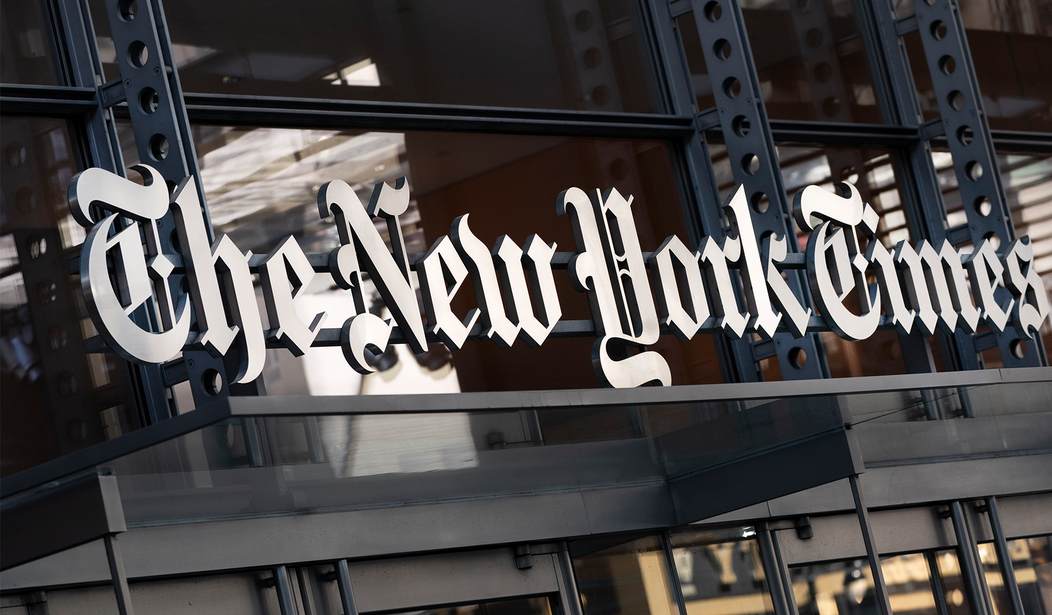Susannah Meadows had a rough childhood. I never knew this, nor did I care to know.
I'm sorry she did, of course. Children are vulnerable and need all the care they can get, and childhood experiences permanently scar some people.
I'm not sure why The New York Times felt the need to share with the world Susannah's childhood trauma, except...to make the point that fathers can really suck.
Progressive America has a clear misandry problem they won’t acknowledge or address, even as they wring their hands about losing male voters. https://t.co/8UI580cEJ6
— Mark Hemingway (@Heminator) June 15, 2025
That fact is not new or controversial. Parents come in all shapes, sizes, and competencies. Some are superb, others meh, and some are downright awful.
My father gave me his freckly skin and, like him, I had melanoma. He gave me asthma and protruding elbows that are identical to his own. He gave me reddish hair that’s kindly reluctant to go gray. He gave me an aversion to drinking by not having one himself.
He did not give me the seat next to him at a San Diego Chargers game. He had season tickets when I was a kid, but I only found out about it years later.
He gave me the ability to talk to anyone because I couldn’t stand the awkward silences that he provided.
He gave me really nice houses to grow up in, but we moved a lot for his work, and things never seemed to be going well, so he gave me financial anxiety, too.
He gave me the tools to withstand a sexist world. He would say: Hillary looks ugly in her pantsuits. And her voice! Women don’t belong on the golf course. This was my exposure therapy. He gave it generously.
Susannah resents her father deeply because, we are told, he was a misogynist. He didn't like Hillary Clinton, and he didn't share his love of baseball with his daughter.
My father gave me his freckly skin and, like him, I had melanoma. He gave me asthma and protruding elbows that are identical to his own. He gave me reddish hair that’s kindly reluctant to go gray. He gave me an aversion to drinking by not having one himself.
He did not give me the seat next to him at a San Diego Chargers game. He had season tickets when I was a kid, but I only found out about it years later.
He gave me the ability to talk to anyone because I couldn’t stand the awkward silences that he provided.
He gave me really nice houses to grow up in, but we moved a lot for his work, and things never seemed to be going well, so he gave me financial anxiety, too.
He gave me the tools to withstand a sexist world. He would say: Hillary looks ugly in her pantsuits. And her voice! Women don’t belong on the golf course. This was my exposure therapy. He gave it generously.
As he has aged--and, living in an assisted living facility without access to Fox News--she has become reconciled with her father, which again is nice.
Her father is still alive. She wrote a hit piece on her living dad, published on Father's Day.
I can imagine an essay like this in a literary magazine, as part of a series about fraught and changing relationships between parents and children. There is nothing inherently wrong with people discussing their struggles with the complexities of growing up with imperfect people. To some extent, we all carry baggage from our childhoods, because there is always some bad with the good, and for some people, far too much bad than good.
But...The New York Times shared this essay on its Opinion page, specifically on Father's Day--an essay that really belongs elsewhere in any case. It is their one essay on fathers this Sunday.

On the day we celebrate fathers, The New York Times features the resentments of a privileged woman who resents her Fox News-loving, Hillary Clinton-hating father, portraying him as a misogynist who made his daughter miserable. This is the archetype of "father" they have chosen to present.
On Father's Day, we aren't just celebrating the good that fathers do, but more importantly, we are elevating an ideal of what fathers should do. In admiring fathers and celebrating them, we are not focused on the fact that fathers have spread their seed and that a sperm got lucky with an ovum. It's not about the mere transfer of genetic material.
It's about love and nurturing, and in celebrating fathers and fatherhood, we are reinforcing the positive values and encouraging them. We become what we admire, which is why we set aside these days and associate them with ideals of motherhood and fatherhood that no person can perfectly achieve.
We can find essays about how all men are misogynists and why they suck any moment of any day; is it too much to ask that, on a day set aside to elevate the sacrifices that fathers make and to encourage the next generation of fathers to aspire to be good parents that we refrain from publishing a "men really suck" essay?
AS your only essay on fatherhood on Father's Day?
The message is clear, and it's not that Meadows had a fraught relationship with her father--a subject of no national import to wind up on the Opinion pages of the most respected newspaper in America.
It's a message of cynicism--that our ideal of family is a sham. Should we really celebrate fathers and fatherhood?
Men, you know, suck, especially if they watch Fox News.
Do better, New York Times. Can you find one day of the year when you aren't bashing men?








Join the conversation as a VIP Member